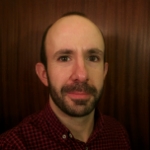The job of a university professor does not end after leaving the classroom or after clicking 'submit' for the last research paper. In addition to the teaching and research activity I participate in the management of my faculty and my university in several areas:
Departamento de Aeronaves y Vehículos Espaciales
Within the School of Aeronautical and Space Engineering, I am part of the Department of Aircraft and Space Vehicles (DAVE), where I have been involved in its management since 2019. From November 2019 to February 2024, I served as the Deputy Director of the Department, and since February 2024, I hold the position of Academic Secretary.
European Union
Other of my tasks as university professor is focused on the european collaboration. Since 2009 I participate in the consortium ECATA (European Consortium for Advanced Training in Aerospace) that is composed by several European universities (Cranfield, ISAE, KTH, Politecnico di Torino, TUDelf, TUM) as well as some of the main European aerospace companies (AIRBUS, BAE Systems, Dassault Aviation, Leonardo, Liebherr, MTU, SAAB amd SAFRAN).
The aim of ECATA is to establish strong and stable collaborations within Europe. One of them that is a joint effort of the universities and the companies in the consortium is the Aerospace Business Integration programme that is focused on improving the international management and cultural awareness of aerospace engineers.
International level
Finally, at international level I collaborate into NAFEMS, the International Association for the Engineering Modelling, Analysis and Simulation Community. For instance, I am part of the Steering Group of the Iberia regional group.
